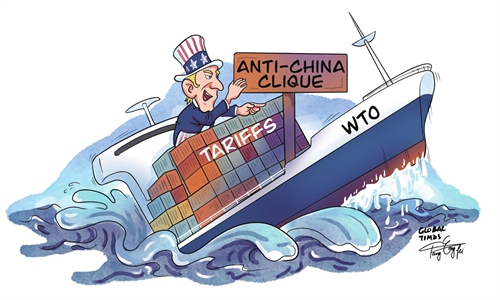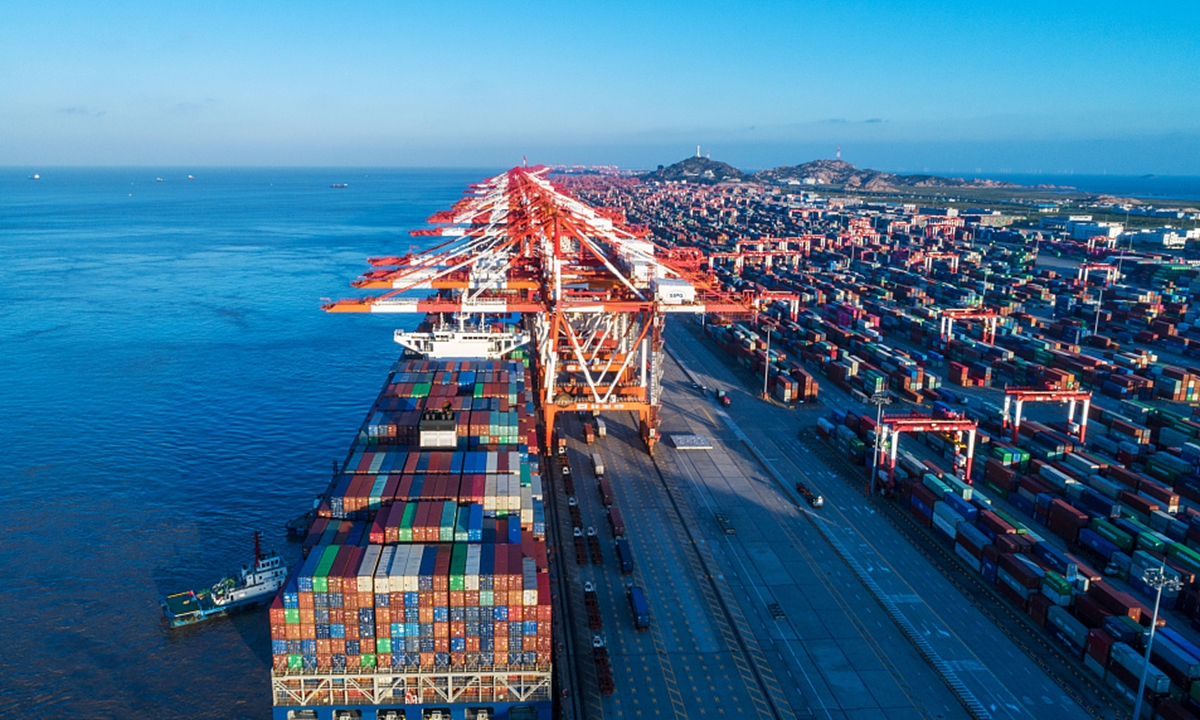
Photo: CFP
On December 11, 2001, China welcomed a watershed moment, becoming a member of the World Trade Organization (WTO), marking its firm determination to further intertwine into the global economy with concessions and commitment made after rare but tough 15-year negotiations.
Twenty years have since passed, with China now a vital stabilizer in the world trade landscape, not only having fulfilled all its promises, but also charting a course for wider opening-up amid rising de-globalization and the persistent pandemic posing a challenge to global trade.
China has proved it deserved to be made a WTO member. However, some foreign media reports claim that China's membership hasn't played out as expected, using areas including state-owned enterprises and subsidies to attack China, describing its growth as a threat to the world. The following statistics can refute all such claims.
Contributing nearly 30 percent on average to global economic growth over the past 20 years, China's international trade has grown six-fold since its accession to the global trading regime. Its total export value share jumped from 4.3 percent to 15 percent from 2001 to 2020, while its import value rose from 3.9 percent to 11.7 percent.
Meanwhile, China's GDP jumped by 816.4 percent, and per capita GDP increased from 8,717 yuan (1,368.9) to 72,000 yuan, enabling it to have the world's largest middle-income population.
China, not swallowing all the benefits, has also been delivering dividends to the world.
To facilitate imports, China has lowered import tariffs for goods to 9.8 percent from 15.3 percent when it joined the WTO 20 years ago. At present, its overall import tax stands at 7.4 percent, lower than the average level of developing members of the WTO and is approaching the level of developed members of the organization.
The customs clearance time of foreign trade goods has also been greatly shortened. It now usually takes 36.7 hours for imports to be cleared at Chinese customs, down 62.3 percent compared with 2017.
Besides goods, China has also widely opened its market in the services industry. The WTO accession protocol and relevant working group reports stipulated that 100 sub-sectors in nine categories need to be opened in 2007. Currently, China has opened nearly 120 sub-sectors, exceeding its commitments.
"Since China's accession to the WTO, the country has witnessed fast economic growth and has fully integrated into the global economy," Alan Beebe, AmCham China President, told the Global Times.
"Gains have been made in areas such as reductions in tariffs and the optimization of customs processes. This has benefited European companies, allowing them to expand their operations, deepen their values chains and gain exposure to the world's largest consumer market," a spokesperson from the European Union Chamber of Commerce in China told the Global Times on Friday.
As testified by the chamber's growth in membership, from 51 to over 1,800 companies, China has become a key market for European businesses.
Looking back, China's entry to the WTO was facing strong headwinds from both the external environment and also opposition from domestic industries players, who are afraid that China's emerging industries would be heavily impacted, Huo Jianguo, vice chairman of the China Society for World Trade Organization Studies in Beijing, who previously participated in China's WTO negotiations, told the Global Times on Friday.
Apart from textile, clothes, shoes and furniture, all other industries were "terrified" that they could face a strong competition if foreign products pour in, Tu Xinquan, dean of the China Institute for WTO Studies at the University of International Business and Economics in Beijing, told the Global Times.
The auto, agriculture and services industries could bear the impact most, but China sticks to its decisions, observers said, reflecting strong determination to intertwine into the global economy from the central government.
"I still remember top executives of our firm held rounds of meetings before China's official accession to the WTO as they were afraid that they could not survive competition from stronger foreign brands," Zhang Xia, once a senior executive at a major Chinese state-owned auto firm, told the Global Times on Friday.
"But it turns out that industries which are over-protected will lag behind, and only a free and open environment can nurture a firm with global advantages," Zhang said, noting that the industry still sticks to the globalization path despite the protectionism trend having been rising in the sector over the past year.
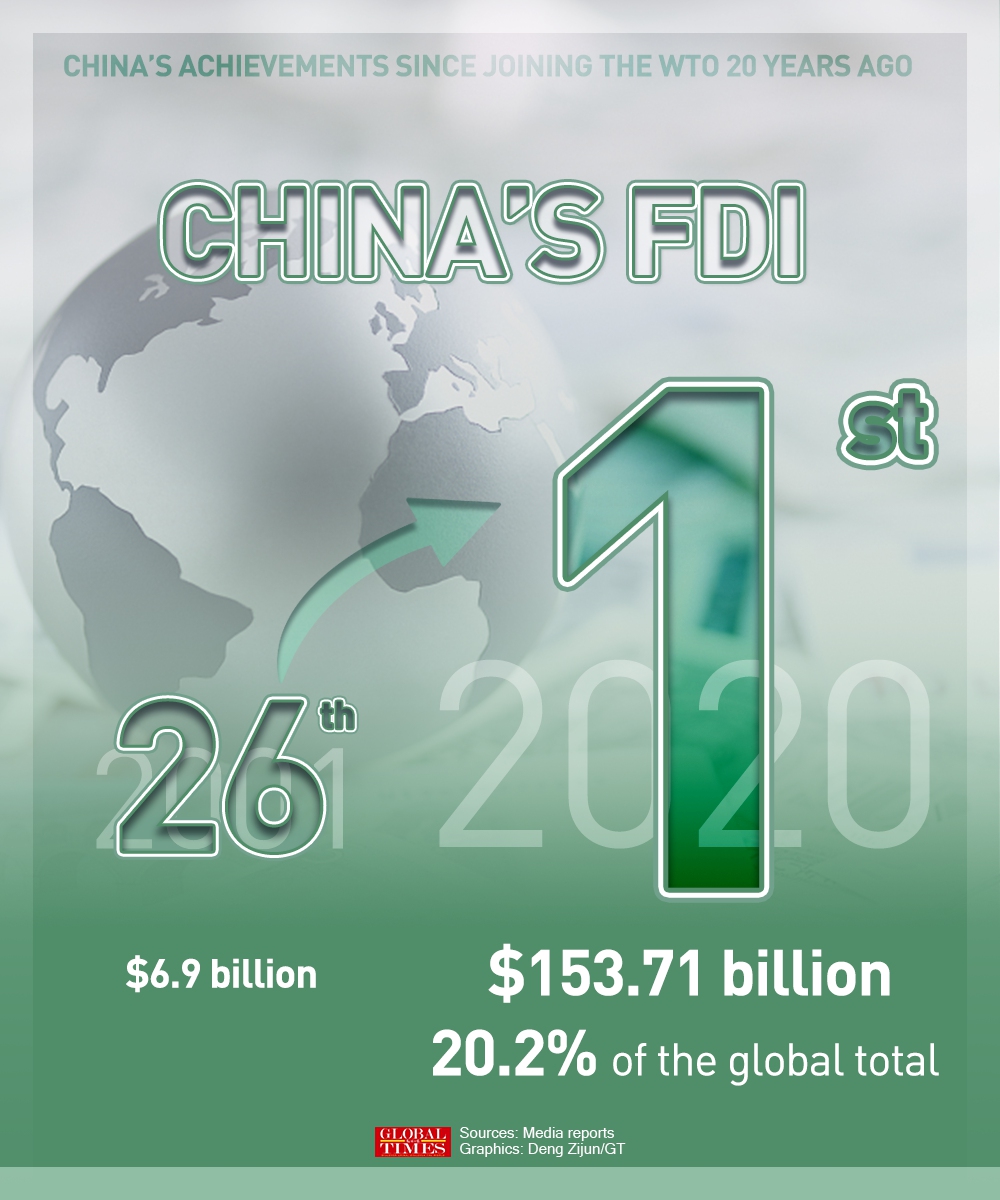
China's achievements since joining the WTO 20 years ago.Graphic:Deng Zijun/GT
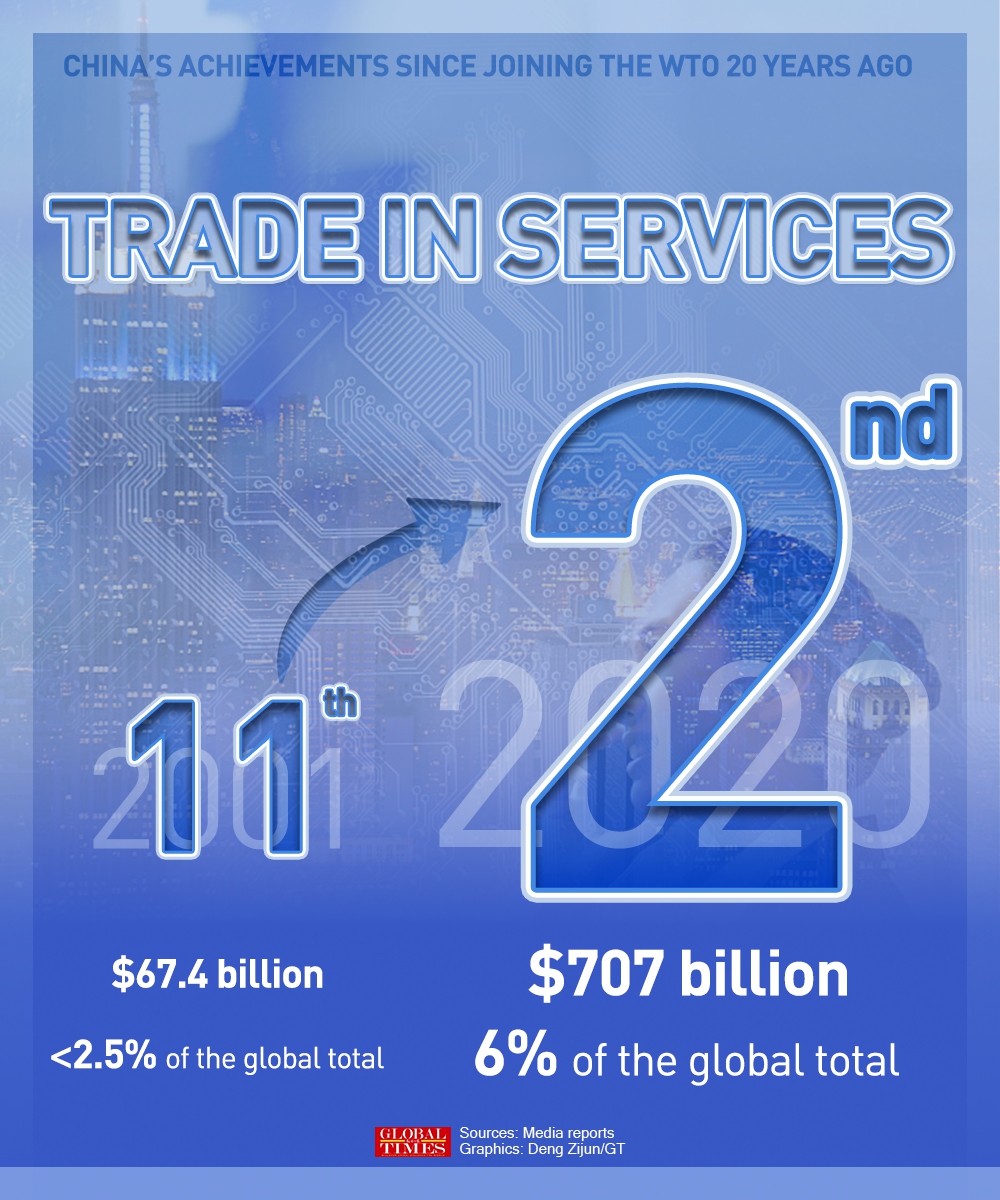
China's achievements since joining the WTO 20 years ago.Graphic:Deng Zijun/GT
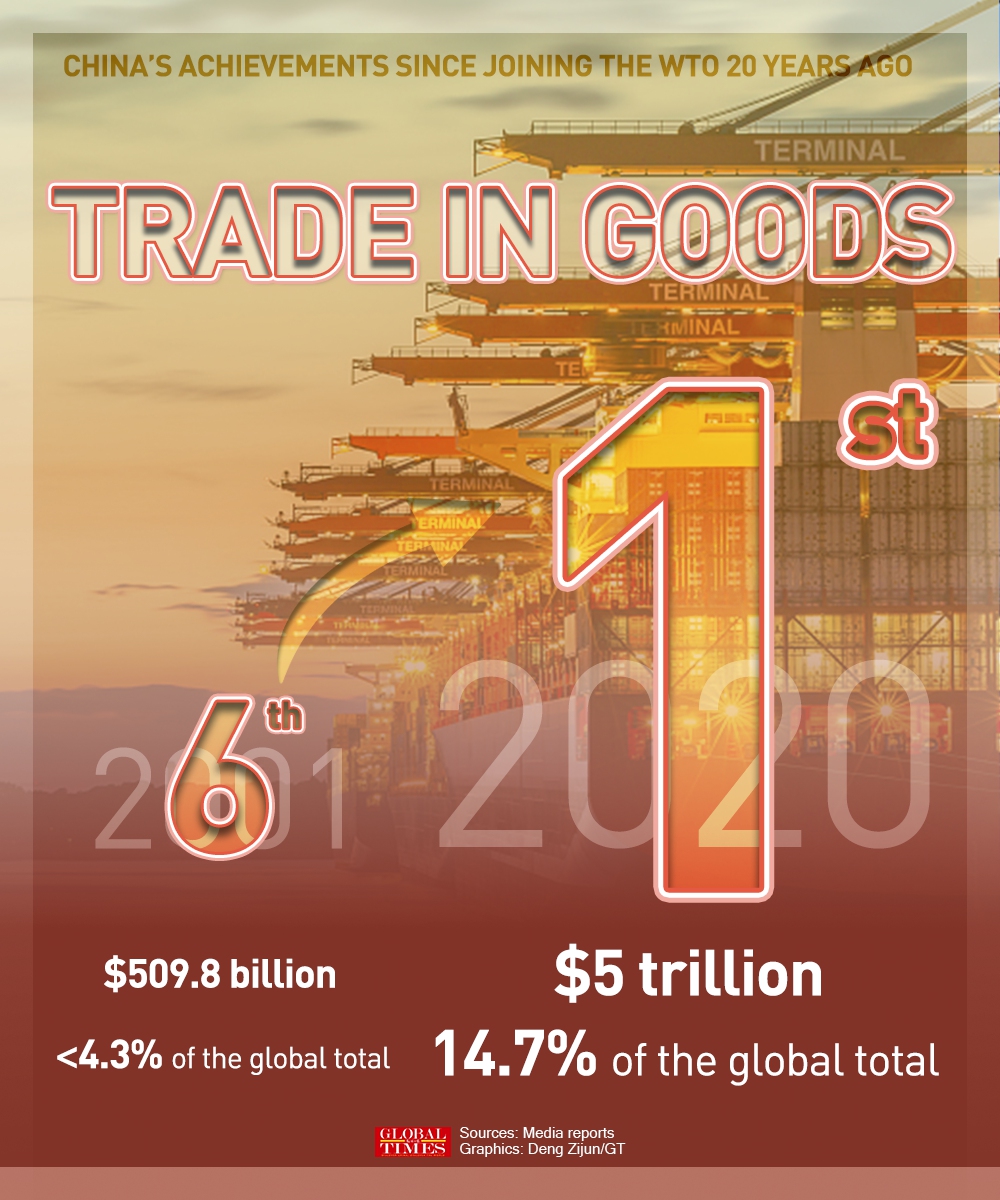
China's achievements since joining the WTO 20 years ago.Graphic:Deng Zijun/GT

China's achievements since joining the WTO 20 years ago.Graphic:Deng Zijun/GT
Leading on the road ahead
China successfully made it through the past two decades; the road ahead, however, has the potential to be bumpy as well. Rising de-globalization, the persistent pandemic and looming climate change all pose challenges that have put the world at a development inflection point.
Moreover, though a global economic setback calls for more combined efforts from the global economy, the US is promoting protectionism and even trying to create a small clique within the WTO to contain China.
With the WTO ministerial conference postponed, US media outlets reported that the US is trying to gang up with the EU and Japan to renew an alliance within the WTO to contain China.
"It is impossible for the US and its allies to establish a set of rules in the WTO that only serve their own economic interests. It is not the US, Europe and Japan that can determine the development and changes of today's international trade," Huo said.
Huo noted that even if such rules are established, they cannot be used to restrain China. Not to mention that most developing countries in the WTO will definitely support China's position on WTO reform.
Nevertheless, China's commitment to the trade body is as consistent and clear as 20 years ago. China's 20 years of achievement and contribution since it joined the WTO have been tangible and remarkable, as it completely met its commitments to the WTO and will continue upholding the multilateral trading system even as protectionism and unilateralism rise across the globe, Gao Feng, a spokesperson for China's Ministry of Commerce (MOFCOM) said on Thursday.

China's 20 years in the WTO Infographic: GT

